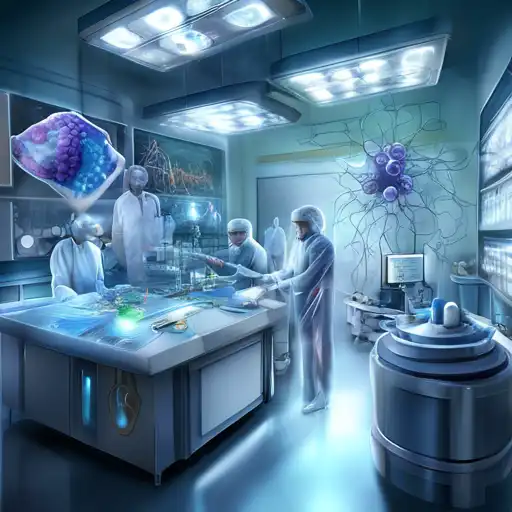Revolutionizing Healthcare: The Impact of Nanotechnology in Medicine
Nanotechnology, the science of manipulating matter at the atomic and molecular scale, is set to revolutionize the field of medicine. With its potential to diagnose, treat, and prevent diseases at a cellular level, nanotechnology in medicine is indeed the next big thing. This article explores the groundbreaking advancements and the future prospects of nanotechnology in healthcare.
Understanding Nanotechnology in Medicine
Nanotechnology involves the use of nanoparticles, which are particles between 1 and 100 nanometers in size. These tiny particles can be engineered to perform specific tasks within the body, such as targeting cancer cells without harming healthy tissue. The precision and efficiency of nanotechnology offer unprecedented opportunities in medicine.
Current Applications of Nanotechnology in Medicine
Today, nanotechnology is being used in various medical fields, including drug delivery, diagnostics, and tissue engineering. For instance, nanoparticles are used to deliver drugs directly to diseased cells, minimizing side effects and improving treatment outcomes. In diagnostics, nanotechnology enables the early detection of diseases through highly sensitive imaging techniques.
- Drug Delivery: Nanoparticles can be designed to carry drugs directly to the target cells, reducing the impact on healthy cells and increasing the effectiveness of the treatment.
- Diagnostics: Nanotechnology enhances the sensitivity of diagnostic tools, allowing for the early detection of diseases such as cancer and Alzheimer's.
- Tissue Engineering: Nanomaterials are used to create scaffolds that support the growth of new tissues, offering hope for organ regeneration.
The Future of Nanotechnology in Medicine
The future of nanotechnology in medicine is bright, with research focusing on personalized medicine, where treatments are tailored to the individual's genetic makeup. Additionally, nanotechnology could lead to the development of nanorobots that perform surgeries at a cellular level, offering a non-invasive alternative to traditional surgery.
Another promising area is the use of nanotechnology in combating antibiotic-resistant bacteria. By designing nanoparticles that can target and destroy resistant bacteria, nanotechnology could provide a solution to one of the biggest challenges in modern medicine.
Challenges and Ethical Considerations
Despite its potential, the application of nanotechnology in medicine faces several challenges, including safety concerns, regulatory hurdles, and ethical issues. The long-term effects of nanoparticles on the human body and the environment are still under investigation, requiring rigorous testing and regulation.
Moreover, the ethical implications of nanotechnology, such as privacy concerns with nano-enabled diagnostics and the potential for misuse, must be addressed to ensure the responsible development of this technology.
Conclusion
Nanotechnology in medicine represents a paradigm shift in healthcare, offering innovative solutions to some of the most pressing medical challenges. While there are hurdles to overcome, the potential benefits of nanotechnology in improving patient outcomes and advancing medical science are undeniable. As research progresses, nanotechnology is poised to become an integral part of future medical treatments.
For more insights into the future of healthcare technology, explore our articles on medical innovation and future medicine.
